UC Law SF Starts Fall Semester with New Faces, Classes, and Building
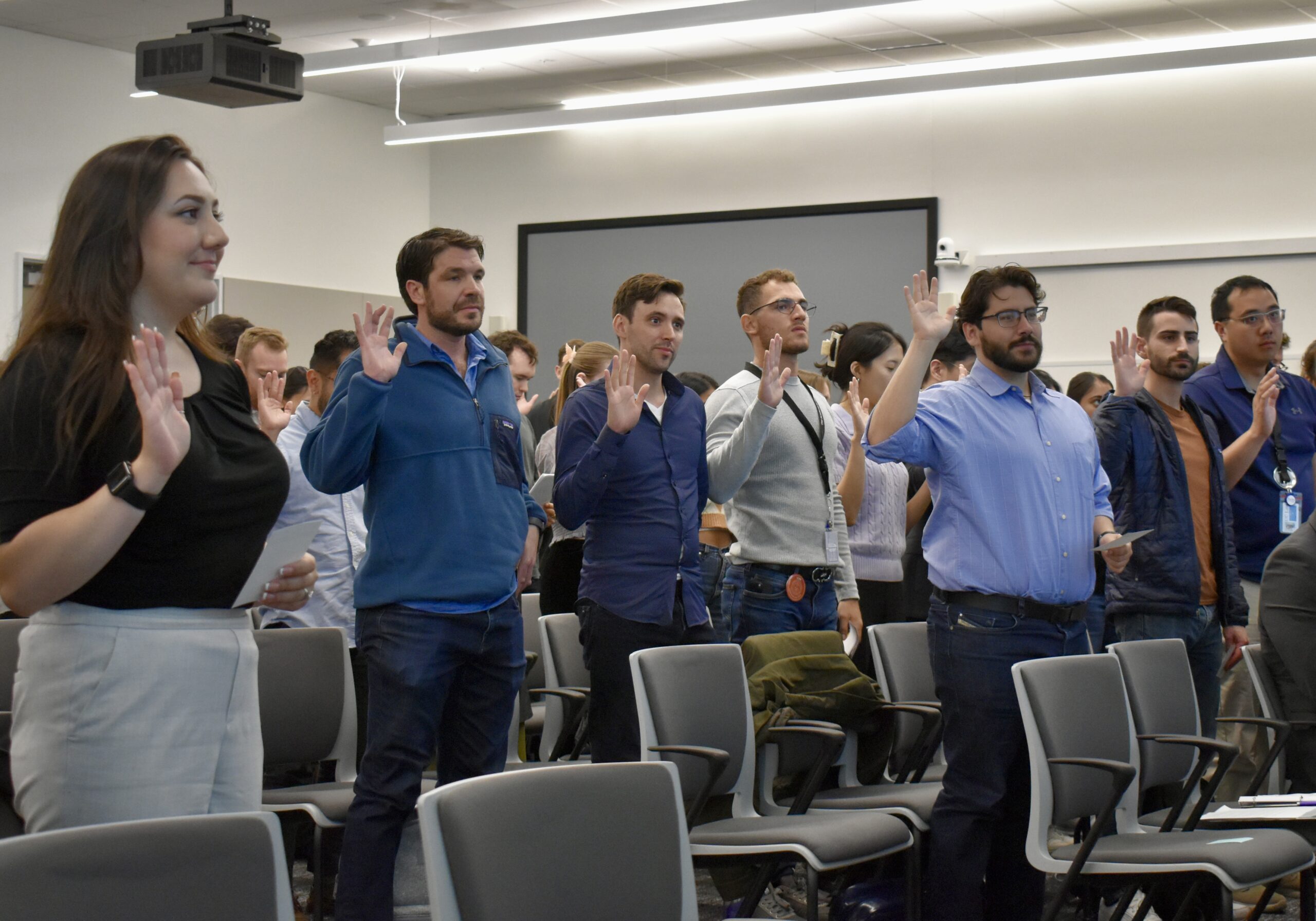
Students from the new JD class of 2026 took the pledge of professionalism during a convocation ceremony in August.
UC Law SF students have much to look forward to this fall: a brand-new high-rise campus building, cutting-edge classes on the most pressing legal issues, and accomplished professors joining the faculty.
Kicking off the first full academic year with the College’s new name, UC Law SF on Monday welcomed a strong incoming class of 450 new students from its JD, master’s, and other programs.
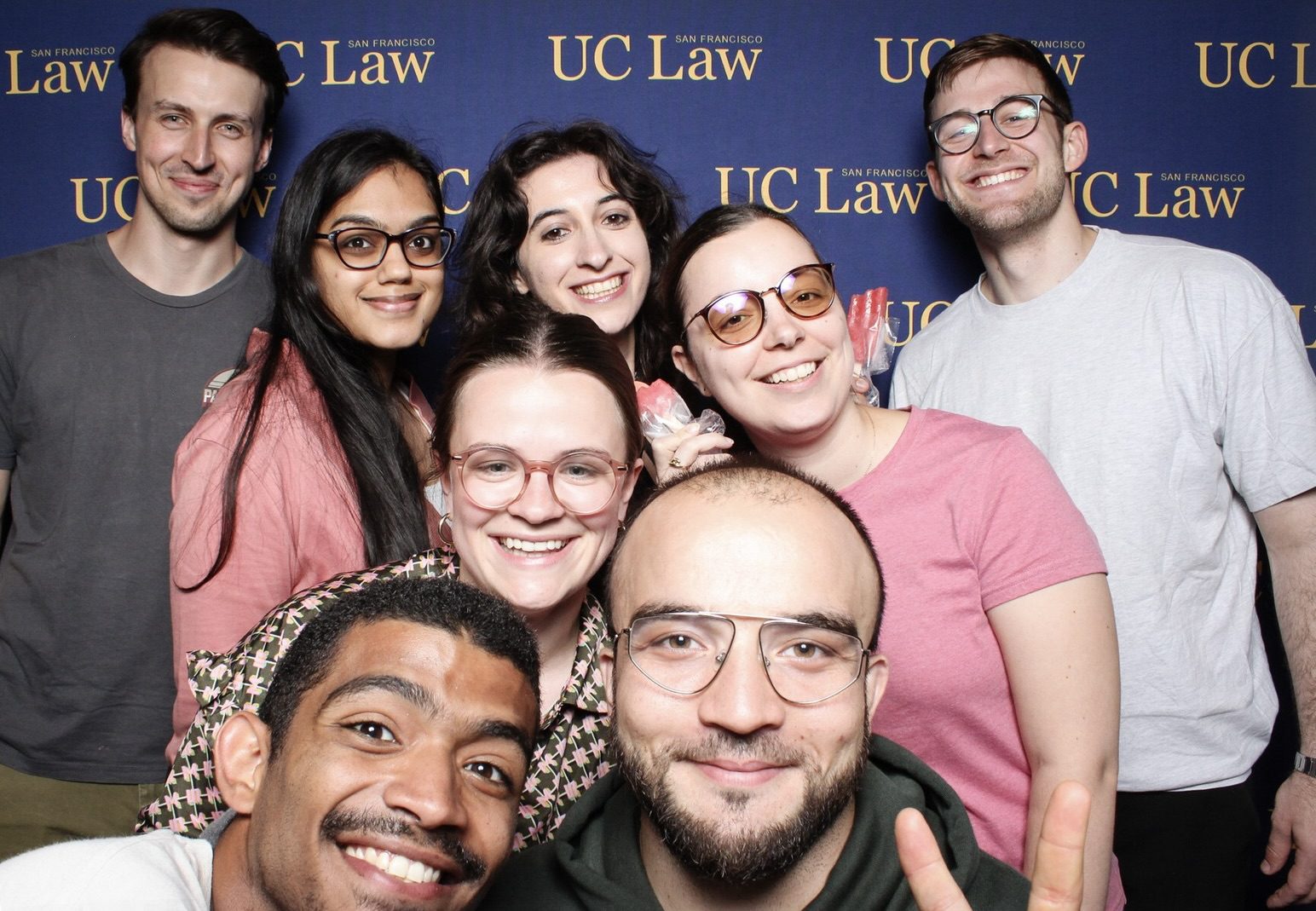
First-year JD students made photo booth memories during Orientation Week in August.
The incoming class of 383 JD students — one of the most diverse in the law school’s history — includes 55% who identify as people of color and 23% who are the first generation in their families to attend college. About 60% identify as female, and 39% identify as male. Nine students use an Mx. prefix, and three identify as non-binary.
“This highly talented group of students overcame a competitive admissions process to earn their place here,” Dean of Enrollment Management June Sakamoto said. “They are more than ready to thrive at UC Law SF with support from our amazing faculty and staff.”
The first-year JD students come from a variety of backgrounds and have worked in jobs as different and unique as biochemist, yoga instructor, software engineer, and transit driver. Seventy-one students, about 18% of the class, are part of the Legal Education Opportunity Program, which admits and provides support for students from disadvantaged economic and social backgrounds.
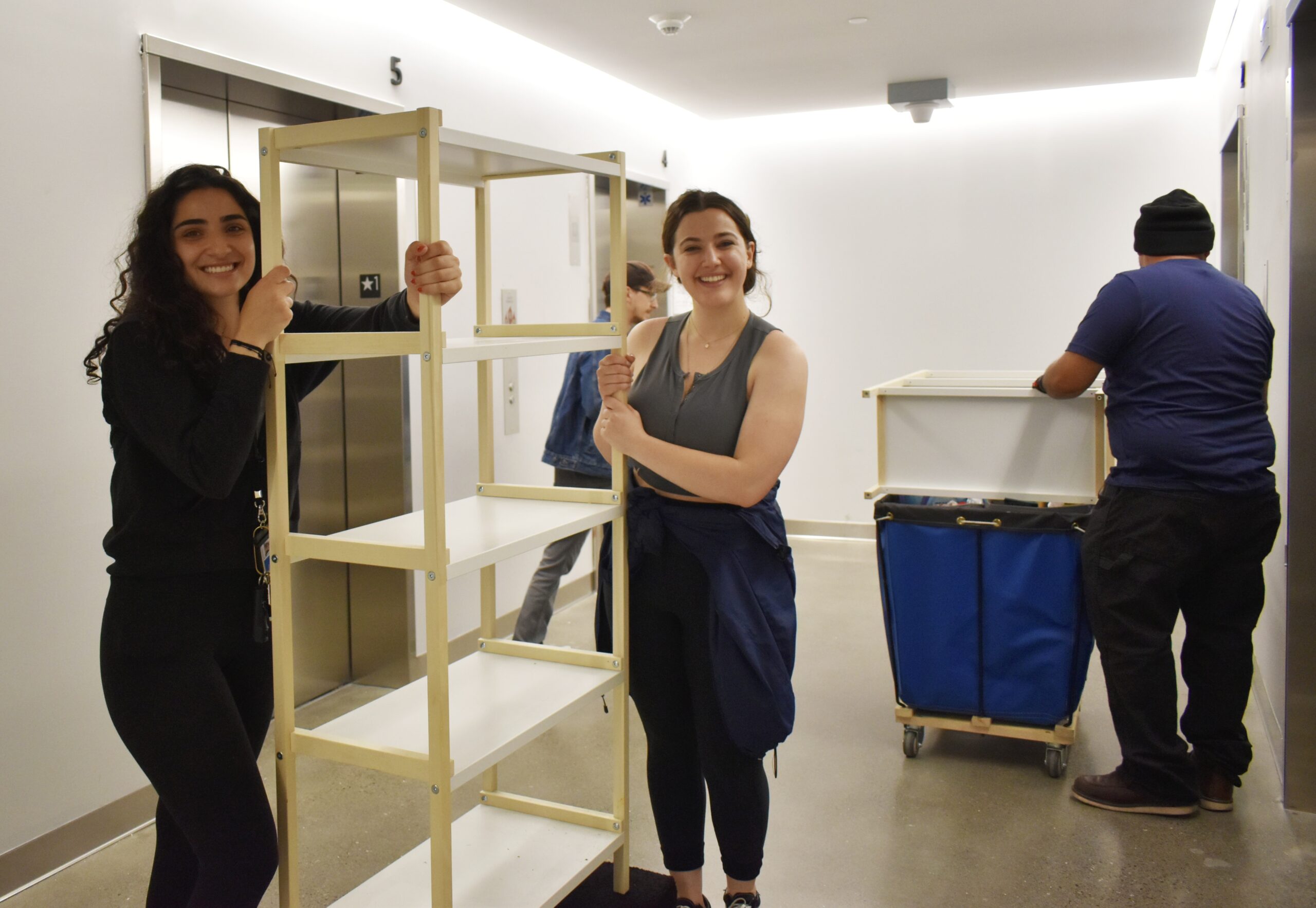
UC Law SF students moved into their apartments at the law school’s newest building at 198 McAllister in early August.
International students from 14 different jurisdictions came to UC Law SF this fall for the one-year LLM Program. The law school also has doctors, nurses, PhD candidates, tax specialists, and government employees, among others, joining its Master of Studies in Law (MSL), Certificate of Studies in Law (CSL), and Master of Science in Health Policy and Law (HPL) programs.
Students will notice a new 14-story building on campus at 198 McAllister St., which includes 656 units of housing for students of UC Law SF and other graduate schools, a 400-seat auditorium, mock courtrooms, and a seventh-floor lounge with skyline views, among other amenities.
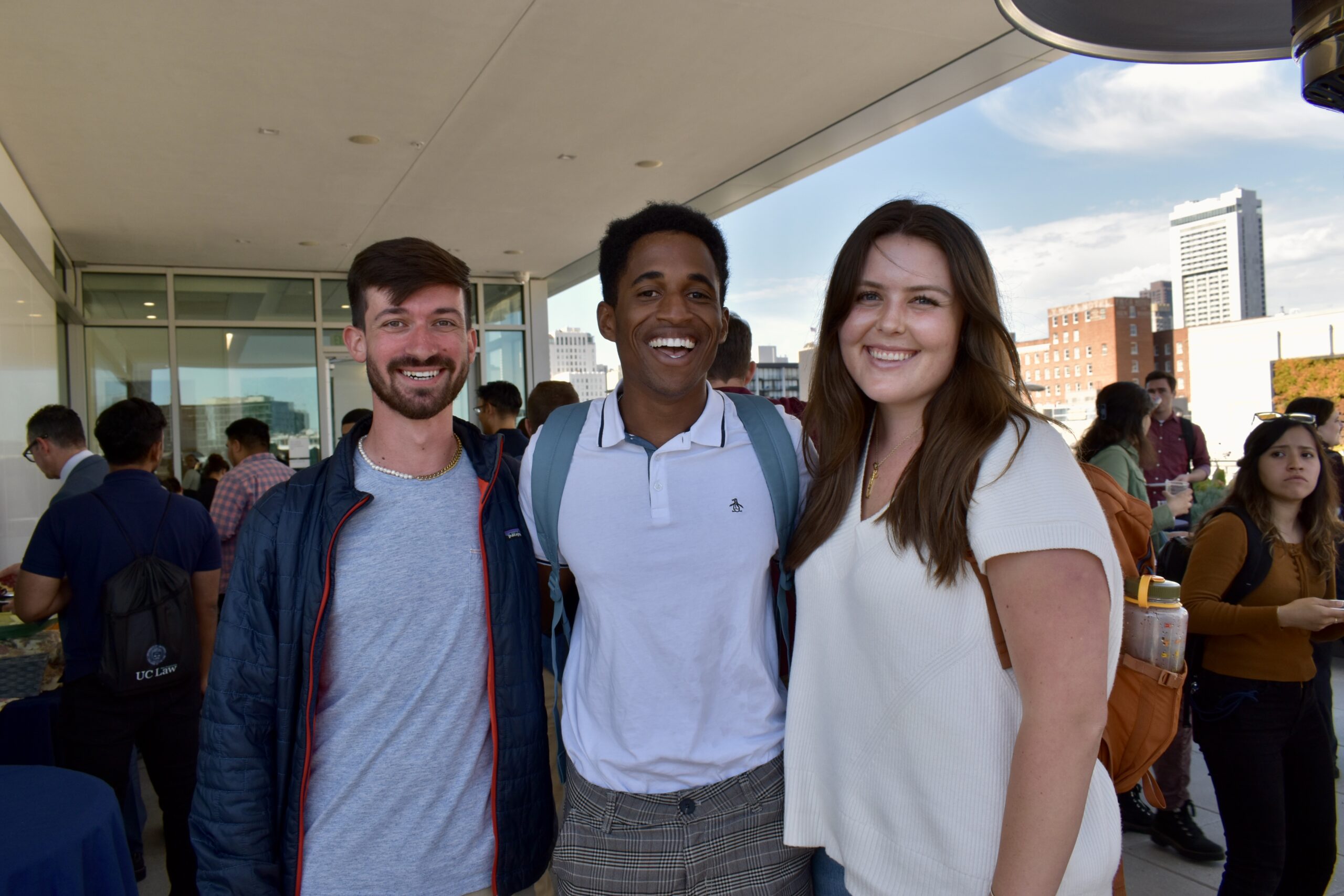
First-year JD students attended a welcome reception hosted by the Diversity, Equity, and Inclusion (DEI) Working Group in August.
The law school has new classes this year on, among other topics, artificial intelligence and the law, in-house lawyering, and Bar exam essay writing. UC Law SF continues to offer unique and relevant courses on Sexuality and the Law, Reproductive Justice, and American Indian Law, and has a suite of classes on privacy.
“We have one of the richest and most diverse course catalogs of any law school,” Provost & Academic Dean Morris Ratner said.
UC Law SF welcomed several new faculty members this year, including: Professor Christina Koningisor, an expert in media law, constitutional law, and government secrecy; Professor Emily Strauss, who specializes in corporate law, securities law and financial regulation; Professor Joseph Creitz, a longtime adjunct professor who was recently named Director of Legal Research and Writing & Moot Court; and Amy Spivey, another longtime adjunct professor who teaches the Low-Income Taxpayer Clinic at UC Law SF.
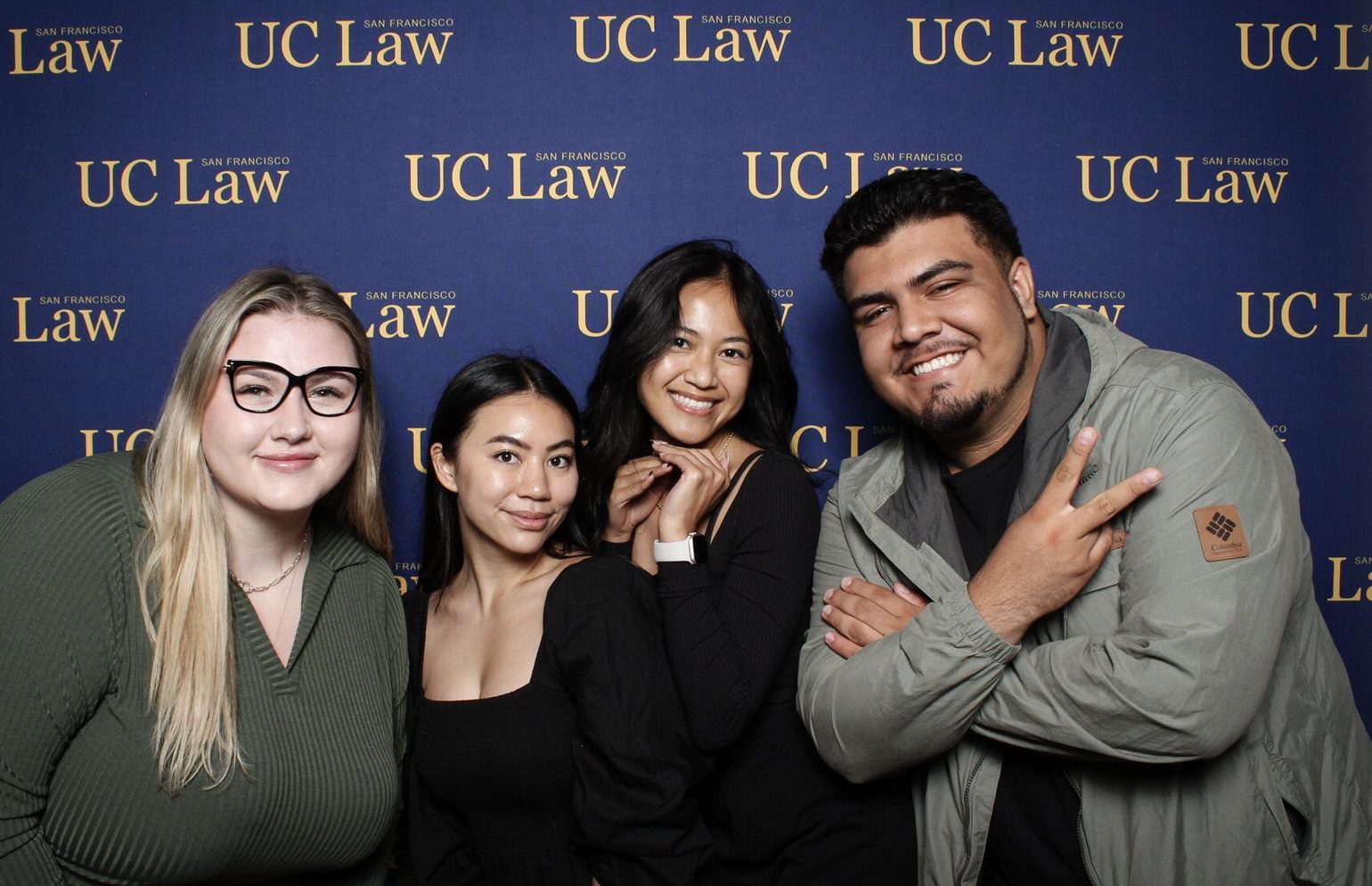
First-year JD students made photo booth memories during Orientation Week in August.
Visiting professors will also enrich the academic environment this year. Just to name a few: Jerry López, a longtime UCLA law professor, will teach a spring seminar on Transforming Law Schools. Benjamin Madley, a UCLA history professor, will work with the Indigenous Law Center on a California legal history project. Kathleen Boozang, former dean of Seton Hall Law School, will teach health law classes as an in-residence faculty member, and alumna Yvette Lindgren ‘91 returns to UC Law SF as a year-long in-residence visitor teaching Constitutional Law 1 and 2.
UC Law SF welcomed new senior administrators this year as well. Professor Dave Owen, a leading environmental law scholar, is taking on a new role this year as Associate Dean for Research. He will continue to oversee the law school’s nine student-led journals, which adopted new names for the 2023-2024 academic year. And Tiffany Gabrielson joined the law school as the new Dean of Students, after previously working in various student affairs roles at Stanford University.
“I’m really excited to welcome the new class,” Gabrielson said. “I hope they optimize their experience across all metrics – academically, socially, holistically.”